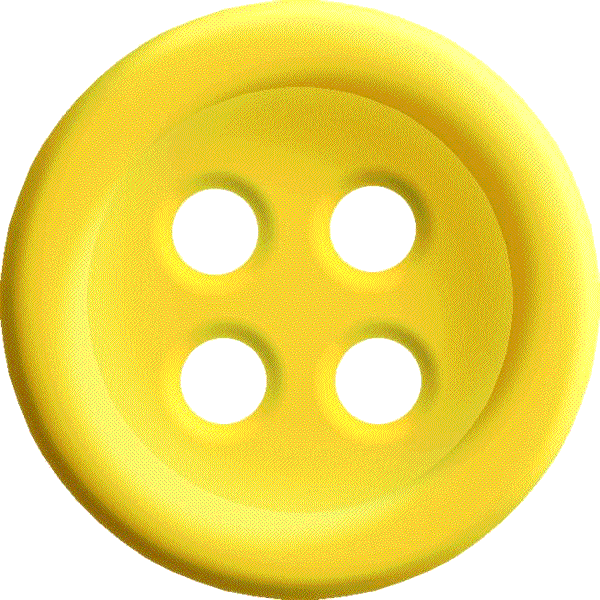
This image has format transparent PNG with resolution 600x600.
You can download this image in best resolution from this page and use it for design and web design.
Clothes button PNG with transparent background you can download for free, just click on download button.
In modern clothing and fashion design, a button is a small fastener, now most commonly made of plastic but also may be made of metal, wood, or seashell, that joins two pieces of fabric together. In archaeology, a button can be a significant artifact. In the applied arts and craft, a button can be an example of folk art, studio craft, or even a miniature work of art.
Buttons are most often attached to articles of clothing, but can also be used on containers such as wallets and bags. However, buttons may be sewn onto garments and similar items exclusively for purposes of ornamentation. Buttons serving as fasteners work by slipping through a fabric or thread loop or by sliding through a buttonhole. Other types of fastenings include zippers, Velcro, and magnets.
uttons and button-like objects used as ornaments or seals rather than fasteners have been discovered in the Indus Valley Civilization during its Kot Diji phase (c. 2800–2600 BC), a black Albertite button at the Tomb of the Eagles, Scotland (2200-1800 BC), as well as Bronze Age sites in China (c. 2000–1500 BC) and Ancient Rome.
Buttons made from seashell were used in the Indus Valley Civilization for ornamental purposes by 2000 BC. Some buttons were carved into geometric shapes and had holes pierced into them so that they could be attached to clothing with thread. Ian McNeil (1990) holds that "the button was originally used more as an ornament than as a fastening, the earliest known being found at Mohenjo-daro in the Indus Valley. It is made of a curved shell and about 5000 years old."
Egypt’s Eighteenth Dynasty left behind ornate wig covers, fabricated through sewing buttons formed of precious metals onto strips of backing material.
Leatherwork from the Roman Empire incorporates some of the first buttonholes, with the legionary Loculus (satchel) closed through the insertion of a metallic buckle, or button into a leather slit. A similar mechanism would later feature in early medieval footwear.[8] Buttons appeared as a means to close cuffs in the Byzantine Empire and to fasten the necks of Egyptian tunics by no later than the 5th century AD.
Functional buttons with buttonholes for fastening or closing clothes appeared in Germany in the 13th century. They soon became widespread with the rise of snug-fitting garments in 13th- and 14th-century Europe.
In this page you can download free PNG clipart: Clothes button PNG images free download, sewing buttons PNG images